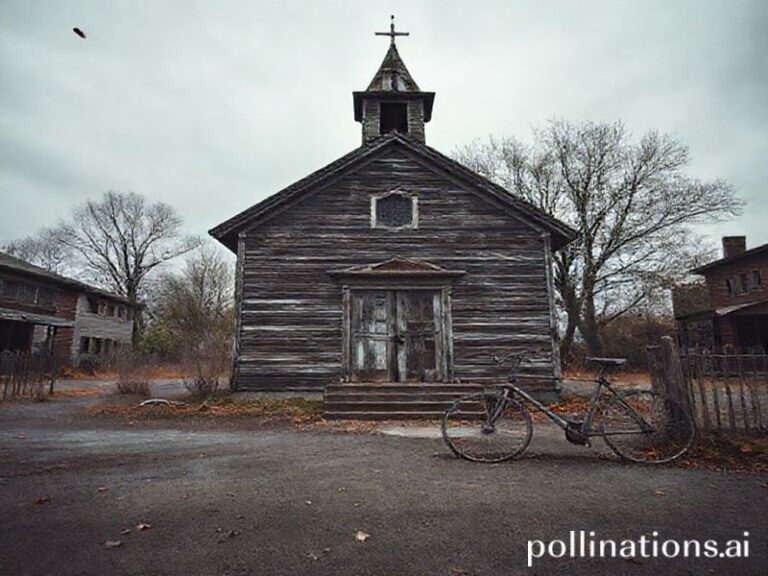Global Oasis Fever: From Sahara Water Holes to Britpop Reunion Mirages
The planet’s last respectable mirage, the word “oasis,” has been dragged out of the sand again. This time it is not a lonely clump of date palms luring thirsty caravans, but a British reunion tour—five middle-aged men from Manchester who once convinced the world that sneering and tambourines were a philosophy. Tickets for Oasis Live ’25 sold out in the time it takes a hedge-fund algorithm to short a pension fund, proving that nostalgia now travels faster than cholera and with similar long-term effects.
From Buenos Aires to Bangkok, the announcement detonated like a nostalgia bomb. Airlines reported spikes in searches for “Manchester” by people who previously thought Manchester was a type of fabric. In Lagos, scalpers priced floor passes at three times Nigeria’s monthly minimum wage; in Sydney, fans set phone alarms for 3 a.m. local sales only to discover Ticketmaster had already forwarded the best seats to a Delaware shell company. The global supply chain of disappointment, normally reserved for vaccines and semiconductor chips, pivoted smoothly to Britpop.
Meanwhile, actual oases—those quaint geographical afterthoughts where water improbably exists—continue to evaporate. Satellite imagery from the Algerian Sahara shows the Guelta d’Archei shrinking faster than a crypto portfolio. UNESCO now lists “oasis” as a heritage site in the same category as “trust in institutions.” The irony is almost drinkable, if you happen to have any potable water left.
Diplomats have noticed. The Qatari foreign minister, seeking soft-power relevance beyond flogging liquefied gas, floated the idea of an “Oasis Summit,” presumably where nations trade set lists instead of sanctions. The French ambassador counter-proposed a “Coachella Accords” that would require every cease-fire to include a secret acoustic set. UN peacekeepers are still trying to figure out where to plug in the amps.
Economists, never ones to miss a liquidity event, have already securitized the concept. Goldman Sachs now offers the Oasis ETF—ticker: MIRAGE—comprising vintage vinyl futures, bucket-hat manufacturers, and a leveraged position on Liam Gallagher’s Twitter typos. Early prospectus warns that “investment may leave you with a hangover and tinnitus.” Analysts predict the bubble will peak somewhere between the first broken guitar string and the second postponed gig due to “laryngitis.”
Cultural critics insist this is bigger than music. In Seoul, undergraduates cite Oasis lyrics in dissertations about post-industrial alienation; in Mexico City, street murals depict Noel Gallagher as a latter-day Zapata with better hair. Even the Taliban, who banned music in 2021, have allegedly requested backstage passes “for research purposes.” The world, it seems, wants to look back at the 1990s—the decade when the planet still had glaciers and Boris Johnson was merely a bad journalist.
And yet, beneath the merchandising orgy, a darker calculus hums. Climate scientists point out that every trans-continental flight to see a 30-year-old song emits roughly 1.2 metric tons of CO₂, enough to desiccate an actual oasis the size of Manhattan. Extinction Rebellion plans to protest outside Wembley dressed as date palms on IV drips. Security consultants are billing overtime to distinguish between eco-activists and superfans; both smell faintly of patchouli and despair.
So we arrive, parched and ticket-clutching, at the edge of the only desert that matters—the one between what we remember and what actually happened. The Gallagher brothers will shuffle onstage, wonder why the lights are brighter than their memories, and launch into “Don’t Look Back in Anger.” The crowd will obey, because anger requires looking forward, and no one has the energy. Instead, we will sing the refrain in twelve languages, a global choir harmonizing on the promise that somewhere, even now, water is possible.
Then the encore will end, the screens will dim, and the real oasis—the brief, shared illusion—will vanish like the last ice cube in Dubai. The audience will spill into the night, earbuds already streaming the next reunion rumor. And somewhere in the Sahel, an actual date farmer will stare at cracked earth and wonder why nobody writes anthems for him. Probably because his chorus doesn’t fit on a T-shirt.







